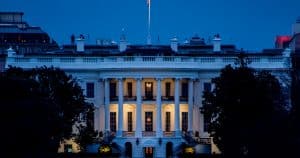British Columbia Supreme Court blocks enforcement of restrictions on public drug use
In a controversial move, the provincial Supreme Court in Canada's British Columbia has blocked new legislation attempting to regulate the use of illegal substances in public places, as the Associated Press reports.
At issue is the Restricting Public Consumption of Illegal Substances Act, a law passed back in November establishing a schedule of fines and potential incarceration for those who ignore police orders regarding drug use within certain distances of specific types of public facilities, including playgrounds, sports fields, splash parks, and the like.
Court issues controversial injunction
Though the provisions of the act have yet to take effect, a group known as the Harm Reduction Nurses Association appealed to the court, arguing that its enforcement would result in violations of the Canadian charter.
The organization also contended that the regulations would foster solitary drug use among addicts, something members say is more dangerous than group use and complained that the law establishes “undue punishment” for addiction while displacing homeless individuals.
Without delving into the merits of the claims at this point, Chief Justice Christopher Hinkson declared that the risk of irreparable harm to plaintiffs and the “balance of convenience” militated in favor of an injunction for the time being, pending a full constitutional challenge.
Caitlin Shane, representing the group of nurses, stated that “substance use cannot be legislated without scrutiny” and lauded the enforcement pause.
Ban supporters weigh next move
British Columbia public safety minister and solicitor general Mike Farnworth expressed disappointment with the decision, saying that he and his staff are currently weighing their options regarding next steps.
Underscoring the motivation behind the regulations at issue, Farnworth said, “The law in question prevents the use of drugs in places that are frequented by children and families.”
“While we respect the decision of the court, we are concerned that this decision temporarily prevents the province from regulating where hard drugs are used, something every other province does, every day,” he added.
Manifestations of decriminalization
As the Associated Press noted, British Columbia has been engaging in an experiment with drug decriminalization in which individuals over the age of 18 are currently permitted to carry upwards of 2.5 grams of opioids for personal use, including drugs such as heroin, fentanyl, and morphine, as well as ecstasy, methamphetamine, and cocaine in crack or powdered form.
The thinking behind the program was reportedly to address chronic drug use as a public health concern, rather than a criminal one, and to reduce the stigma that often attaches to those in the throes of addiction.
But, as local Mayor Brad West of Port Coquitlam explained, public drug use has spiraled out of control as a result, further lamenting, “The court is, once again, demonstrating how out of touch they are...[i]f this restriction doesn't stand, then we have truly entered the wild west of unrestricted drug use, anywhere and everywhere,” and that seems like something most in British Columbia should wish to prevent.




